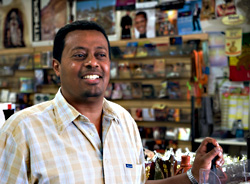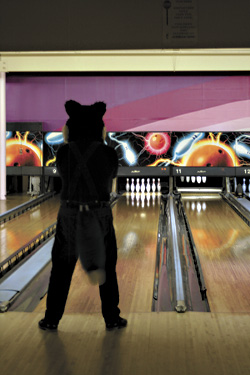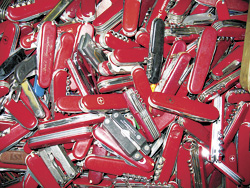Perhaps the smartest decision Berhane Amanuel made in his life was leaving his mother behind in Ethiopia when he emigrated in 1987. Now Amanuel’s got somebody on the inside to coordinate his import business, which last year brought $200,000 worth of Ethiopian spices and goods into Seattle.
Amanuel, a soft-spoken Metro bus driver, runs East African Imports out of the corner of a strip mall in Judkins Park. Beaded masks, musical instruments, and posters of bare-breasted African women line the walls, while the nucleus of the store is composed of racks of lentils, fenugreek seeds, butter-flavoring agents, and berbere, the fiery spice mix that provides the complex heat of Ethiopian stews. This is one end of the operation; on the other end, in Addis Ababa, is Amanuel’s septuagenarian mom, Whaid, who oversees a workforce of maybe a half-dozen people. “They buy the raw material, and they grind and mix it,” says Amanuel, who’s 48. “My mom is the one who controls the quality.”
If you see a spice for sale in Seattle that claims to be direct from Ethiopia, chances are it first passed through East African Imports. Amanuel supplies spices and grain to more than 20 restaurants and stores in the city. He sells wholesale to shops across the country. He didn’t have this business model in mind when he started selling Ethiopian baskets, jewelry, and assorted knickknacks on eBay before opening his shop about five years ago. The spices were just a means to fill the empty gaps in his shipping containers. But now they’re his primary focus, as well as a godsend to Ethiopian gourmands. “They have [the same spices] here,” he says, “but somehow it’s different from home.”
Amanuel carries the ground hops, roasted corn, and malt craved by émigrés who want to make their own home-style beer. He has the barley used for breakfast cereal. He’s the go-to guy for green coffee, ceramic coffee pots, and movies about coffee. (“Ethiopia is the birthplace for coffee,” he explains.) What looks like detritus collected from a forest floor and ladled into plastic containers is actually a distinctive type of Ethiopian incense. Bula powder from the false banana tree is a big seller: It’s used to prepare a nourishing soup that’s popular with postpartum women. The products are packaged in baby-food jars and flimsy plastic tubs that apparently once held different food products.
“They get boiled, treated, and reused,” Amanuel says of the odd containers, which he asserts undergo U.S. quality control checks. “Here, they would just get recycled.”— 2301 S. Jackson St., No. 204, 322-7717.







